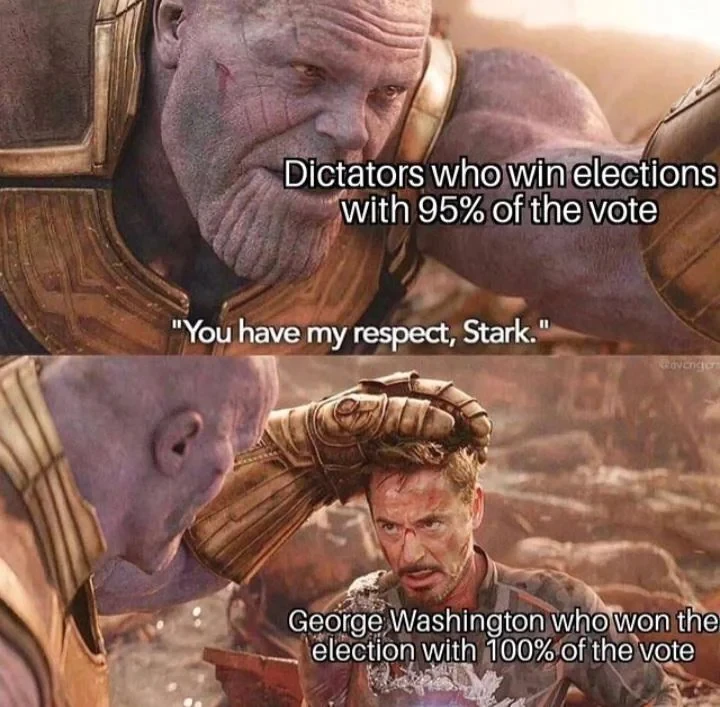Explanation: In the modern day, it's common for dictators to announce elections, and then have them 'won' by improbably high vote counts - sometimes exceeding the number of actual registered voters in a region.
George Washington, the first president of the USA, on the other hand, won exactly 100% of the vote!
Of course, there is a substantial reason for this difference. While Washington was immensely popular as a war hero who had stepped down from power at the end of the American Revolutionary War, the real reason for the perfect score was the voting system of the early USA.
We in the USA have an institution known as the electoral college - it's utterly fucked and archaic today, but it did serve a purpose originally. Namely, that each of the original 13 states joined up with the USA with the understanding that they would have freedom to run their own elections - nominally as a safeguard against centralized tyranny, and because of the vastness of the new country and the difficult of transport and communication (with even voting results of this system taking months to come in and tally).
However, this also meant that there were effectively 13 different election systems with different voter qualifications and processes. To 'streamline' counting that, each state was assigned a number of 'elector' positions based on their population that the state's elected legislature would decide how to appoint. Three states, furthermore, had borked things up (two failed to ratify the Constitution in time for the election; the New York legislature got caught up in arguments with itself about its electoral system and failed to send any electors). Washington thus won every vote cast - but from an 'electorate' of 69 electors (nice), not millions!
... it made sense before the invention of the train and the telegraph, and when the roads to DC were packed with mud and not gravel; not so much now.
